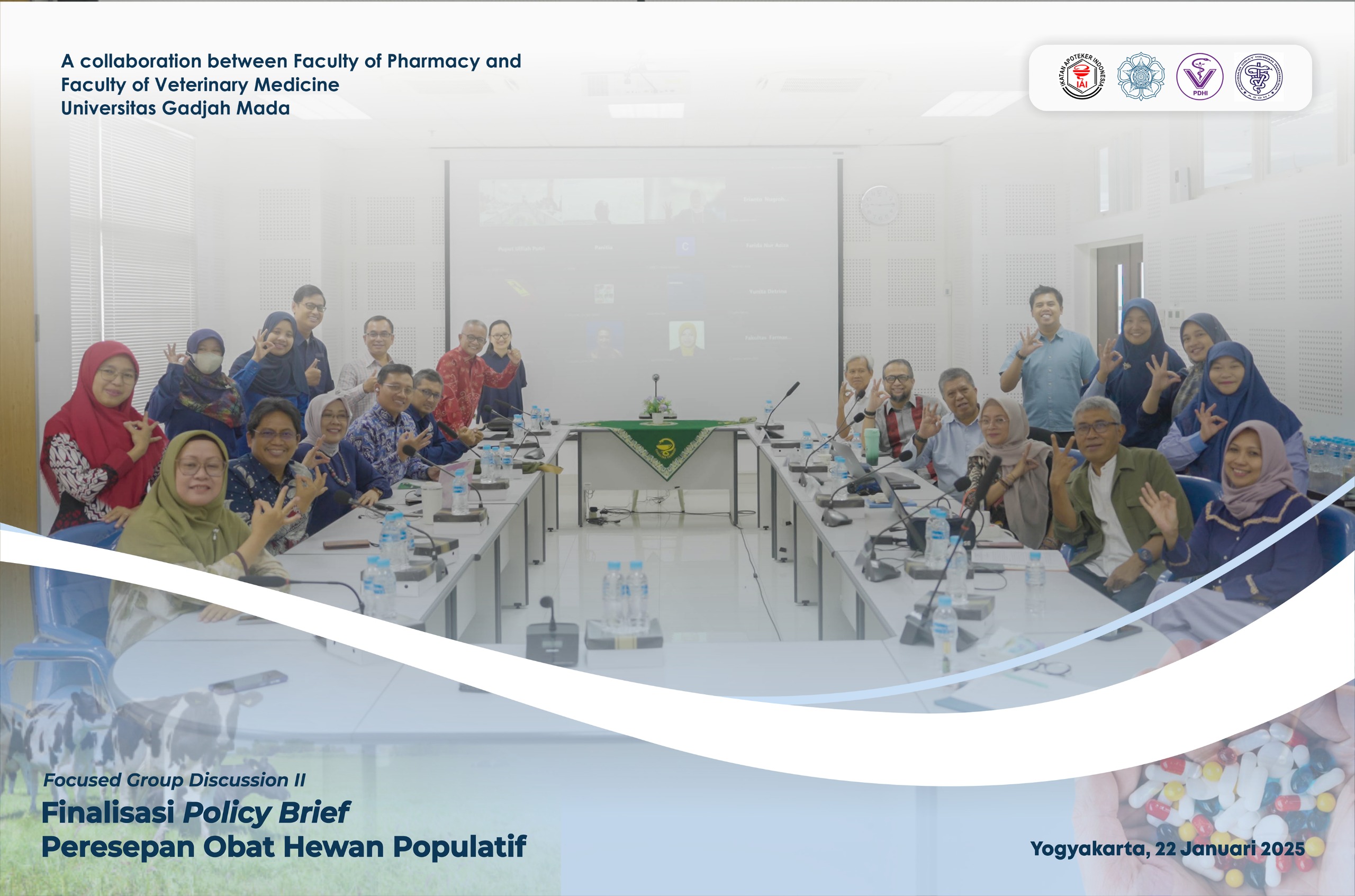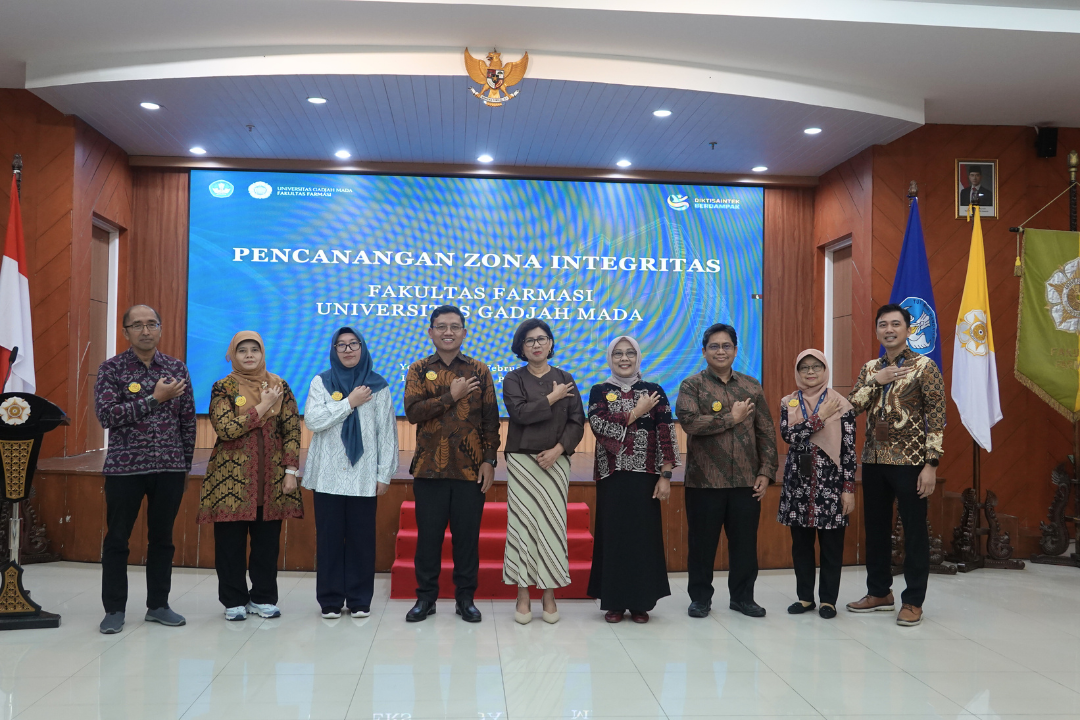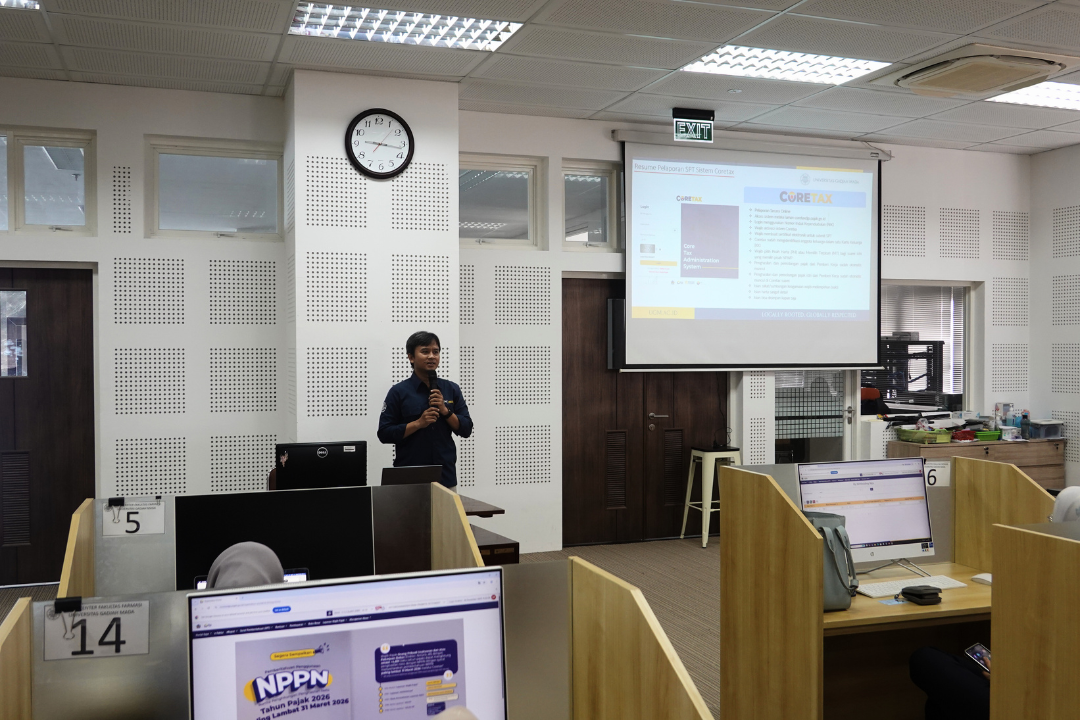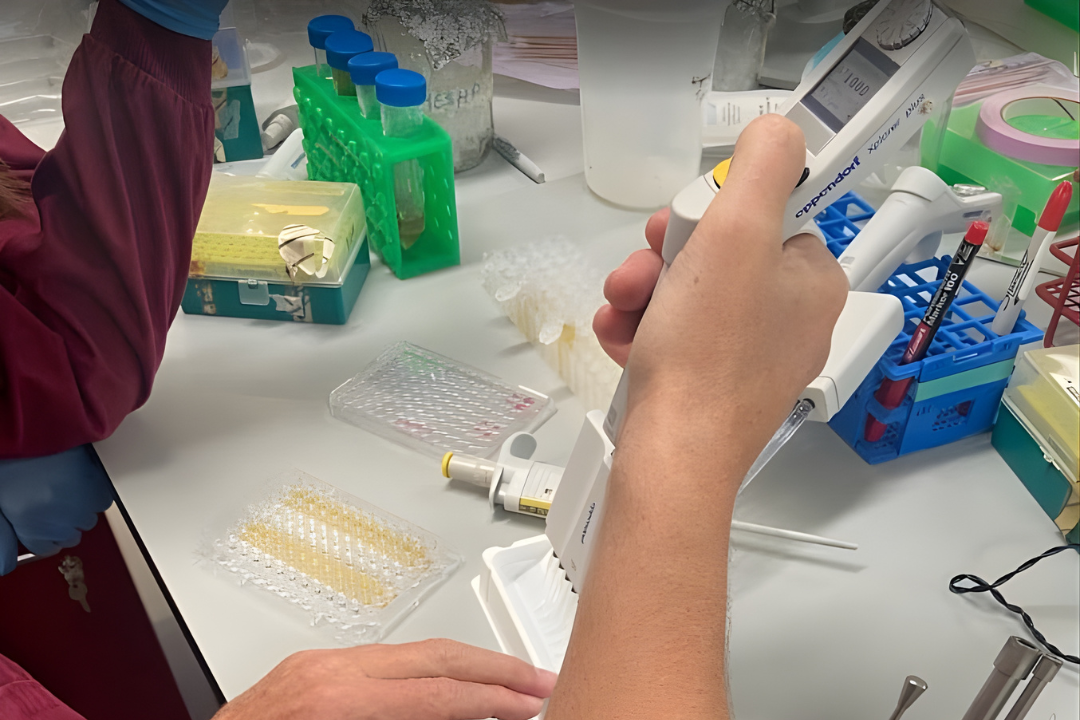Pharmacy UGM – Wednesday (22/1), the Faculty of Pharmacy at Universitas Gadjah Mada (UGM) held its second Focus Group Discussion (FGD) on Veterinary Pharmacy and Population-Based Veterinary Drug Prescription. This event was a follow-up to the first FGD conducted on December 19, 2024. The discussion aimed to refine the conclusions from the previous session and develop additional materials on prescription guidelines for the Veterinary Drug Responsible Officer (PJTOH) training module.
The FGD was facilitated by the UGM Faculty of Pharmacy and attended by various stakeholders, including the UGM Faculty of Veterinary Medicine, the Indonesian Veterinary Medical Association, the Indonesian Veterinary Drug Association, and the Central Board of the Indonesian Pharmacists Association. The forum aimed to formulate a policy brief on universal veterinary drug regulations, covering aspects such as drug management across different sectors, technical guidelines for pharmacist licensing by the Ministry of Agriculture, as well as standards and guidelines related to veterinary drugs. Additionally, this FGD served as a platform to develop the PJTOH veterinary drug prescription training module.
The event was conducted in a hybrid format, taking place at the RSP Room, 7th Floor of the APSLC Building, Faculty of Pharmacy UGM, and via Zoom Meeting. The discussion began with opening remarks from the Dean of the Faculty of Pharmacy UGM, followed by remarks from the Dean of the Faculty of Veterinary Medicine UGM. Dr. apt. Nunung Yuniarti, SF., M.Si., then presented the key takeaways from the first FGD before the participants proceeded with two focused discussion sessions.
Several key points discussed in this FGD included the formulation of national veterinary drug regulation policies, the development of prescription guidelines for community pharmacists handling veterinary drugs, and strengthening the role of professional associations in supporting the implementation of these policies. With a comprehensive training module in place, professionals in veterinary pharmacy are expected to be better equipped to apply veterinary drug prescriptions in accordance with health and safety standards.
This initiative aligns with the Sustainable Development Goals (SDGs), particularly SDG 3 (Good Health and Well-being) in ensuring access to safe and effective medications, SDG 4 (Quality Education) in developing curricula and training programs for pharmacy professionals, and SDG 17 (Partnerships for the Goals) by fostering cross-sector collaboration in improving veterinary pharmaceutical regulations and practices in Indonesia. (Rita/HumasFA)





